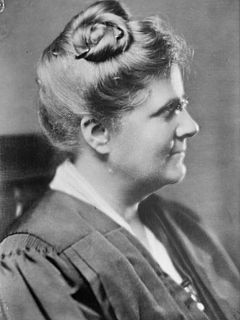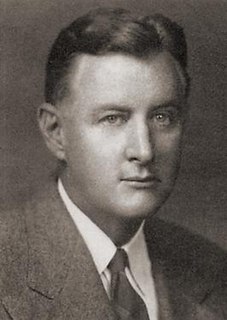A Quote by Florence Ellinwood Allen
The fact that the movement was carried on by women who, for the most part, had no money of their own and were totally inexperienced in organization, and that they won their fight in about two generations, makes a story often dramatic and always worth preserving.
Related Quotes
It would be too ridiculous to go about seriously to prove that wealth does not consist in money, or in gold and silver; but in what money purchases, and is valuable only for purchasing. Money no doubt, makes always a part of the national capital; but it has already been shown that it generally makes but a small part, and always the most unprofitable part of it.
When I joined Uber, the organization I was part of was over 25% women. By the time I was trying to transfer to another Eng. organization, this number had dropped down to less than 6%. Women were transferring out of the organization, and those who couldn't transfer were quitting or preparing to quit.
A movement with some lasting organization is a lot less dramatic than a movement with a lot of demonstrations and a lot of marching and so forth. The more dramatic organization does catch attention quicker. Over the long haul, however, it's a lot more difficult to keep together because you're not building solid...A lasting organization is one in which people will continue to build, develop and move when you are not there.
In fact, I always assumed that most everything I read was true, to one degree or another. I couldn't articulate this fact until after I read Tim O'Brien's The Things They Carried and he discussed Happening Truth, Story Truth, and Emotional Truth. I always understood that the facts of The Sun Also Rises or On the Road were the facts as dictated by a certain narrative structure, but because the experiences of those characters echoed my own feelings about the world. I knew there was a Happening Truth behind them.
The blind spot for the in the Southern Progressive Movement - as for that matter in the national [progressive] movement - was the Negro, for the whole movement in the South coincided paradoxically with the crest of the wave of racism. Still more important to the association of the two movements was the fact that their leaders were often identical. In fact, the typical Progressive reformer rode to power in the South on a disenfranchising or white-supremacy movement.
My life story is something obviously that belongs to me very personally. And the fact of the matter is that I had choices and chances and opportunities that were provided to me, based on the way I was able to direct my own decision-making. And what I'm working to fight for is to make sure that all women have the ability to do that.
How frail and ephemeral is the material substance of letters, which makes their very survival so hazardous. Print has a permanence of its own, though it may not be much worth preserving, but a letter! Conveyed by uncertain transportation, over which the sender has no control; committed to a single individual who may be careless or inappreciative; left to the mercy of future generations, of families maybe anxious to suppress the past, of the accidents of removals and house-cleanings, or of mere ignorance. How often it has been by the veriest chance that they have survived at all.
My life after childhood has two main stories: the story of the hustler and the story of the rapper, and the two overlap as much as they diverge. I was on the streets for more than half of my life from the time I was thirteen years old. People sometimes say that now I'm so far away from that life - now that I've got businesses and Grammys and magazine covers - that I have no right to rap about it. But how distant is the story of your own life ever going to be? The feelings I had during that part of my life were burned into me like a brand. It was life during wartime.
They carried all the emotional baggage of men who might die. Grief, terror, love, longing--these were intangibles, but the intangibles had their own mass and specific gravity, they had tangible weight. They carried shameful memories. They carried the common secret of cowardice.... Men killed, and died, because they were embarrassed not to.


































